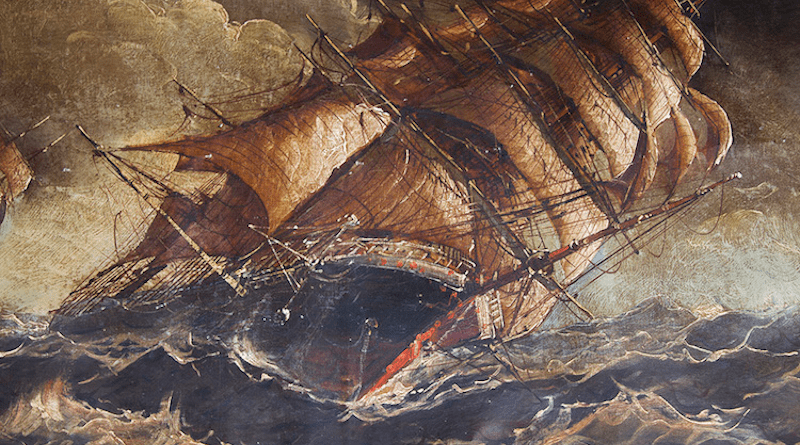Shipwreck Museum In Cape Verde Recalls A Dark Past – OpEd
By IDN
By Lisa Vives
The Republic of Cabo Verde (Cape Verde) is an archipelago island nation to the west of Senegal and Mauritania, consisting of 10 volcanic islands that lie between 320 and 460 nautical miles west of Cap-Vert, the westernmost point of continental Africa.
The official language is Portuguese, the language of instruction and government and in newspapers, TV and radio, but the recognized national language is Cape Verdean Creole, spoken by the vast majority of the population.
A sizeable Cape Verdean diaspora community exists across the world, especially in Massachusetts and Rhode Island, and in Portugal, considerably outnumbering the inhabitants on the islands.
New finds from archaeologists have brought to light fresh evidence of Cape Verde’s role in the transatlantic slave trade.
Charles Akibode, director of Cape Verde’s Institute of Cultural Heritage claims nations often sent pirates to do their dirty work.
The Portuguese colonization of the Cape Verde (Cabo Verde) began in 1462. Initially envisaged as a base to give mariners direct access to West African trade, the Central Atlantic islands soon became a major hub of the Atlantic slave trade.
Enslaved Africans were used on the sugar plantations of the islands and sold on to ships sailing to the Americas. The islands gained independence from Portugal in 1975.
As Cape Verde was much further from Portugal than the other Atlantic colonies (about two weeks sailing), the islands attracted fewer European settlers, especially women. As a consequence, Europeans and Africans intermarried on the islands, creating an Afro-Portuguese culture with a strong African religious and artistic influence.
The Museu dos Náufragos (Shipwreck Museum), on the island of Boa Vista in Cape Verde, has reopened two years after the beginning of the Covid-19 pandemic.
Here, history is told from the period of the discoveries, slavery, isolation, survival, drought and Creole culture.
The Museum is the result of the work of two decades by Maurizio Rossi, an Italian archaeologist.
“This is a three-story museum that starts in the darkest part of history,” Rossi said. “Hundreds of objects are exhibited here such as finds from the wreck of historical ships off Boa Vista, pieces from the period of the pirate attacks to the island or from the sending of enslaved Africans to the Americas and, also, from the Cape Verdean art, and its evolution during the encounters of cultures.”
Through the nineteenth century and into the twentieth century, a law enacted by the Portuguese government in 1899 allowed authorities to force any kind of work, no matter how low the wage or undesirable the situation, upon any unemployed male. This enabled the government to maintain the work force on the cocoa plantations during another grave famine in 1902 to 1903.
In the 1950s, protest was mounting throughout Portuguese Africa. A group of Cape Verdeans and people from the mainland colony of Guinea-Bissau, led by Amilcar Cabral, joined forces to organize the Partido Africano de Independencia de Guine e Cabo Verde (PAIGC).
Those who resisted politically were subject to the terrors of the Portuguese secret police, and sometimes imprisoned in the concentration camp at Tarrafal, on Sao Tiago. Built in 1936, it operated until 1956. It reopened in 1962, under the name of ‘Chão Bom Labour Camp’, with the purpose of incarcerating anti-colonial activists from Angola, Guinea-Bissau and Cabo Verde.
On April 25, 1974, the government in Portugal was overthrown. The new Portuguese government was prepared to destroy their old colonies, but reconsidered, believing that they could still control the colonies with puppet governments. The Cape Verdeans resisted, supporting the PAIGC, and general strikes were called. The government surrendered when all services and production stopped.
Independence Day was established on July 5, 1975 and is celebrated by Cape Verdeans throughout the world. Many music lovers now know Cape Verde for the stunning work of singer Cesaria Evora.

